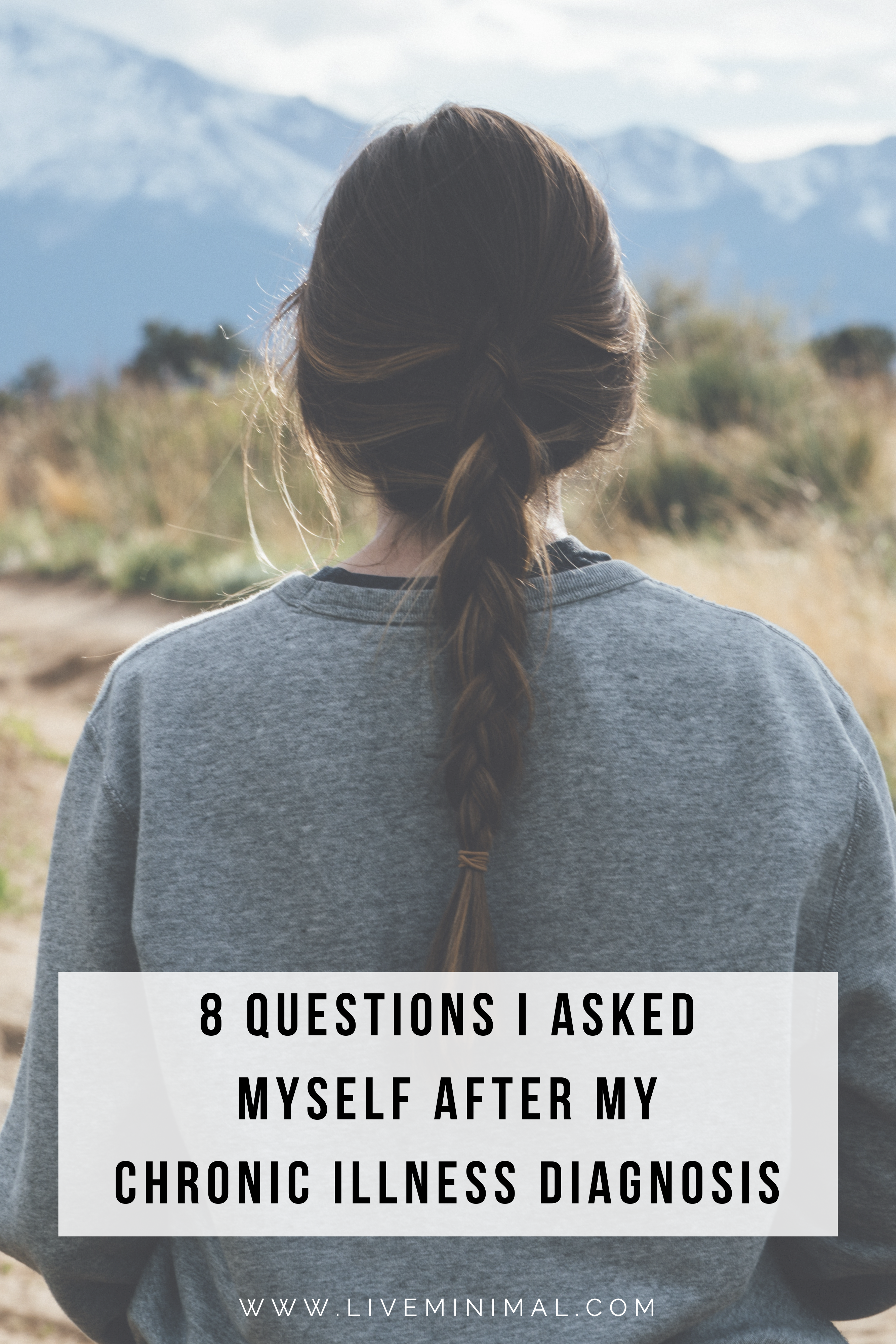If you like, you can read about my story with autoimmunity here. Prior to my diagnosis, doctors would tell me my symptoms were due to stress. So when my specialists figured out the conditions I had (Hashimoto’s thyroiditis, undifferentiated connective tissue disease, inappropriate sinus tachycardia, and postural orthostatic tachycardia), I was relieved that I finally had some answers.
It was also a very confronting time. I was 26 and had career and life goals that I wanted to reach. In my mind these diagnoses were obstacles and I became concerned about whether or not I would be able to meet any of my goals. I had so many questions, yet no one to turn to.
Below are the 8 questions I asked myself after my chronic illness diagnosis:
1. Why me?
My initial thought was, what did I do to deserve this diagnosis? My emotions went through an entire cycle of shock, frustration, sadness, anger, and acceptance of these illnesses. I would compare my lifestyle with other people who had habits worse than mine, yet didn’t have a chronic illness. It didn’t seem fair. In this health journey, there are moments when it doesn’t make any sense. After four years, there are days I still ask myself why.
2. What now?
After diagnosis, I wondered what my next steps were. Do I need to take medications? Can I avoid taking medications if possible? Where do I go from here to ensure this doesn’t progress? Is it even possible to prevent this from getting any worse? I would spend hours every day researching outcomes for these chronic illnesses. With conflicting information online, not all of the advice left me feeling optimistic about my situation.
3. How will this diagnosis affect my life?
In the beginning, I was being admitted to the hospital every few days. I was barely able to function without having cardiac episodes and needed help with the basics like getting to the toilet and showering because I struggled to stand. It was hard to see how I could continue without needing constant help. Would I be able to meet my career goals? Would I be able to have my own family? I felt useless and not in control of my own body.
4. How can I manage these symptoms?
I would try to figure out ways to move my illness into remission by modifying things on a daily basis. I removed gluten and soy from my diet, tried to get more sleep, attempted to reduce my stress. Then I would become frustrated with my dietary/lifestyle restrictions and slip back into bad habits. All of my hard work was reversed and it showed in my blood results. It’s still overwhelming for me, but I remind myself that life is a marathon and not a sprint. Every time I go backward, I ask myself how can I get back on track?
5. How do I find the strength to keep going with this pain and fatigue?
Each day has its own set of struggles. From the time I wake up to the time I go to bed, I experience different levels of pain. For the most part, I’ve learned to zone out any pain and muscle aches and push through (often times leading to a flare). However, there are instances when the pain is so intense that I can’t push through because it makes me physically ill. Some mornings I wake up and think to myself, I can’t deal with this pain, it’s too much. I’ve since learned the importance of pacing myself and managing my chronic illness before reaching this point.
6. Are there any positives to this diagnosis?
I believe it’s really important to search for a positive in any situation. It’s definitely not easy. When you can barely get out of bed, have memory issues and are always in a constant state of pain, the positives are not necessarily evident. Some of the positives that have come from my chronic illness is an increased level of empathy towards others. Another is the recognition that there is more to life than working yourself into burnout. Finally, I learned to appreciate my family and friends a lot more. When you find a few positives, write them down. When I’m struggling, I like to pull mine out and go over them as a reminder.
7. Can I still achieve my goals with chronic illness?
Absolutely! Instead of focussing on all the things that I couldn’t do, I started to focus on things that I could. I needed goals and direction. The last thing I wanted was for chronic illness to control everything in my life. I made a bucket list of 30 things I wanted to do before I turned 30. You can read some of my goals here. They are simple, achievable and take into consideration my physical limitations. These goals, along with a few others, gave me purpose and drive when feeling hopeless.
8. What does the future hold for me?
At first, my outlook on life was bleak. However, I became more optimistic as I started readjusting and reaching some of my smaller goals. I didn’t meet my earlier career goals, instead, I made new ones – achievable ones. I try hard to look at what has gone right in the day, instead of focussing on what has gone wrong.
When you’re diagnosed with a chronic illness you may experience an emotional cycle. For me, it has been discouraging and daunting, however, it has made me reflect on what is really important in life. They were the 8 questions I asked myself after my chronic illness diagnosis. Perhaps you asked yourself the same questions as me, or maybe you had a few different ones. If so, what were some of the questions you asked yourself after being diagnosed with chronic illness?



